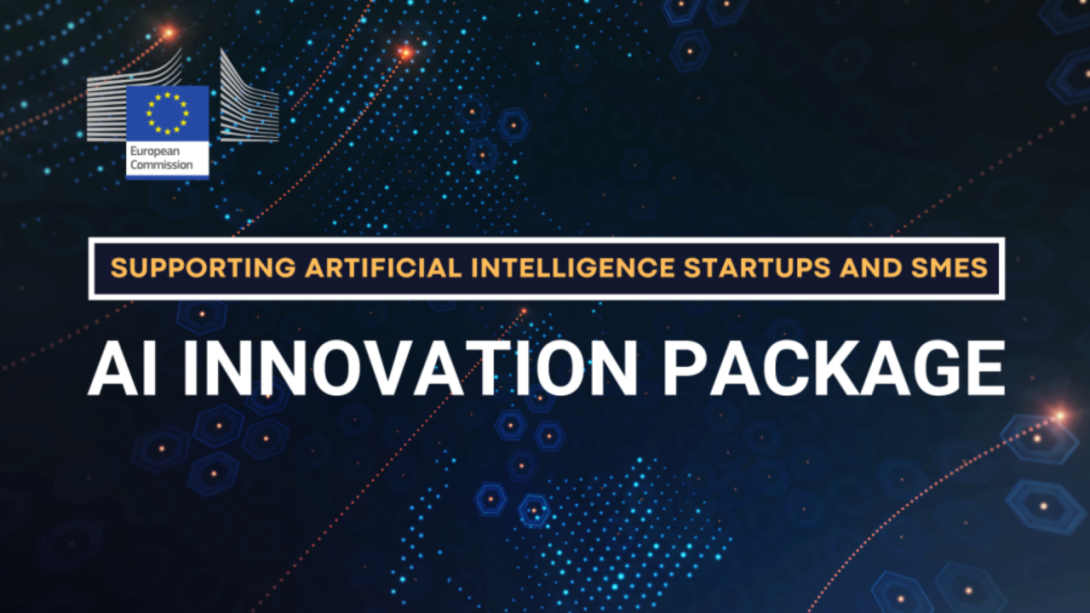
On 24 January 2024, on the heels of the political agreement reached in December 2023 on the EU AI Act - the world’s first comprehensive law on artificial intelligence - the Commission launched the AI innovation package to support AI innovation among startups and SMEs.
The overall ambitious goal, as stressed by President Von der Leyen during the last State of the Union address, is to grant European AI startups access to the continent’s powerful supercomputing infrastructure, enabling them to effectively train AI models while adhering to EU values and regulations. This commitment is now being put into practice through the new innovation package broad measures boosting AI innovation among European startups and SMEs.
The Commission introduced amendments to the EuroHPC Regulation to establish ‘AI Factories’ - a new pillar integrating world-class supercomputing infrastructure with specialised human resources to propel advancements in AI models and applications advancements. This includes acquiring, upgrading, and operating AI-dedicated supercomputers for rapid machine learning and training of large-scale general purpose AI (GPAI) models.
Alongside these initiatives, the European AI Office commenced operations in February 2024, tasked with ensuring AI policy development and coordination at the EU level, and supervising the AI Act’s implementation and enforcement in collaboration with member national authorities.
The proposal also outlines an EU AI Start-Up and Innovation Communication detailing key activities: financial support from Horizon Europe and Digital Europe for generative AI, initiatives strengthening the EU’s generative AI talent pool through education and training, encouraging public and private investments into AI startups and scale-ups via venture capital and equity support. The overall public-private investment package amounts to €4 billion through 2027 for generative AI. Additionally, the ‘GenAI4EU’ initiative supports developing novel AI use cases and applications across Europe’s 14 industrial ecosystems including robotics, health, and manufacturing. The Commission will enhance data accessibility through developing Common European Data Spaces, providing high-quality datasets for startups and innovation communities to train AI systems, models, and applications.
Finally, two European Digital Infrastructure Consortiums are being established: “ALT-EDIC” to address European language data scarcity for training AI while upholding linguistic diversity; and “CitiVERSE EDIC” leveraging cutting-edge AI to develop Local Digital Twins for optimising smart city operations.
This comprehensive package fosters an AI ecosystem of excellence and trust, empowering startups and SMEs to innovate while upholding EU values and regulations. We can witness several important touch points with CEDAR.
CEDAR will harness AI breakthroughs to combat corruption via analytics-enabled governance, while the AI package nurtures an ethical European AI ecosystem by startups and innovators - creating a virtuous cycle.
The Common European Data Spaces accelerated by the AI package become enriched resources for CEDAR to tap into and contribute harmonised datasets, enhancing Europe’s overall data ecosystem and benefiting all downstream applications. The AI package’s overarching goal of developing trustworthy AI respecting EU rules aligns with CEDAR’s transparency, accountability and evidence-based decision-making in governance, leveraging the AI initiatives.
From responsible development to tackling societal issues, the EU’s holistic vision manifests technology’s potential to strengthen democracy, sustainability, human rights while promoting economic competitiveness.